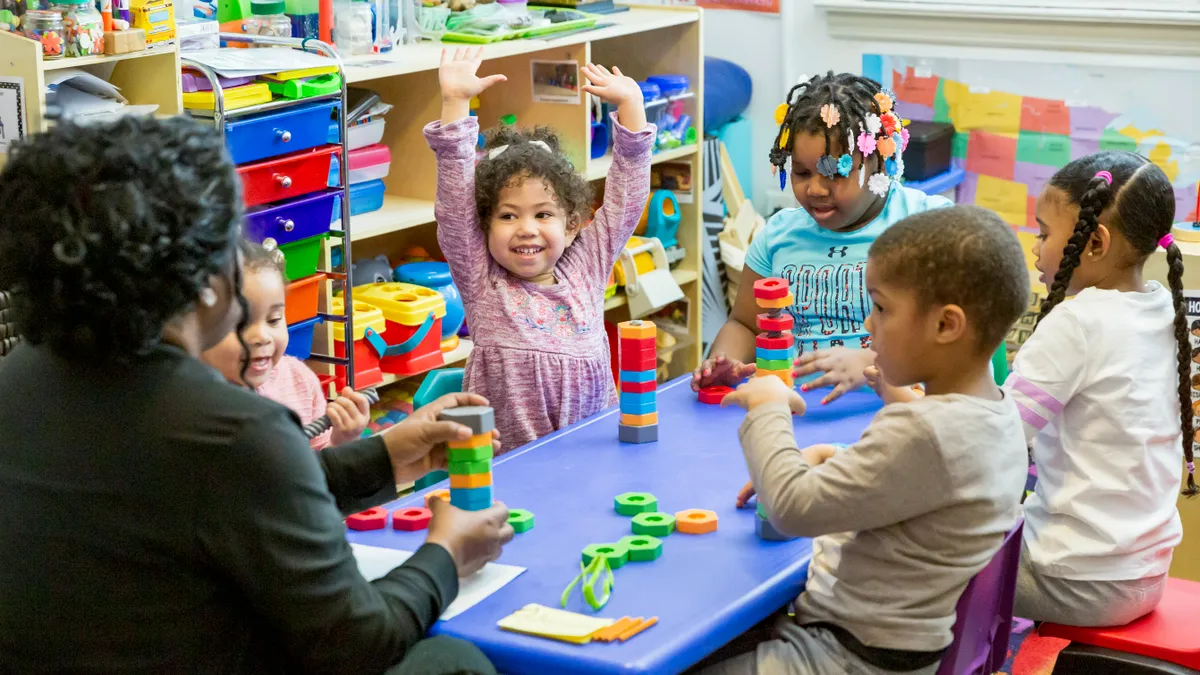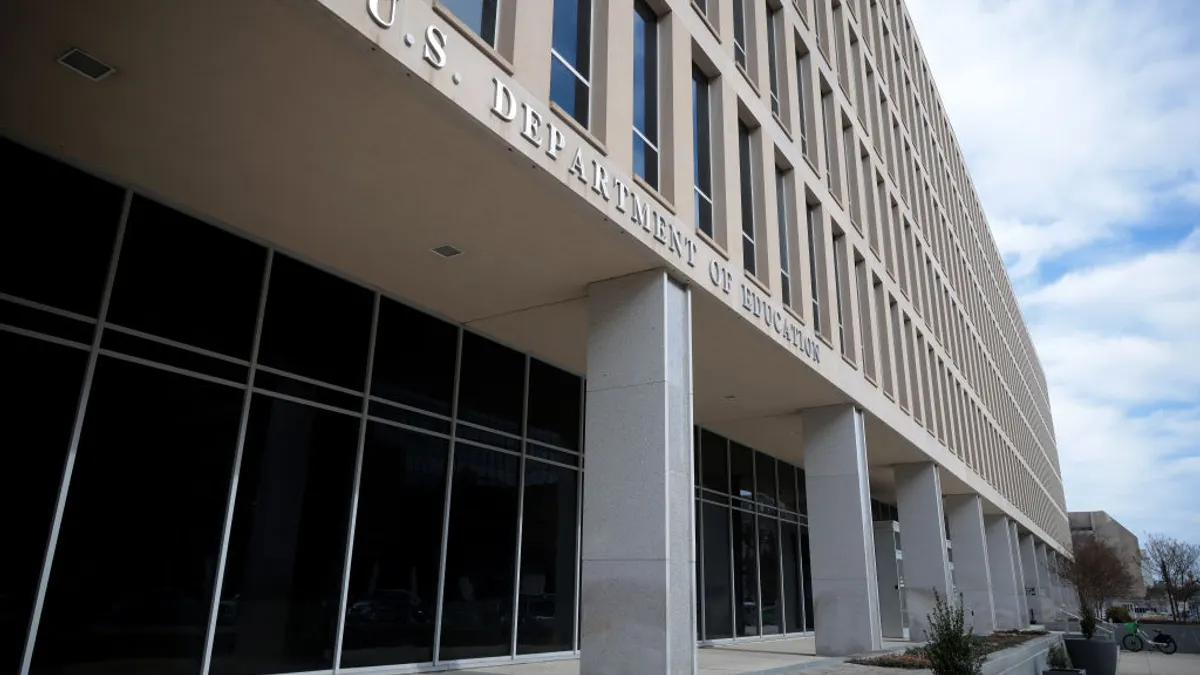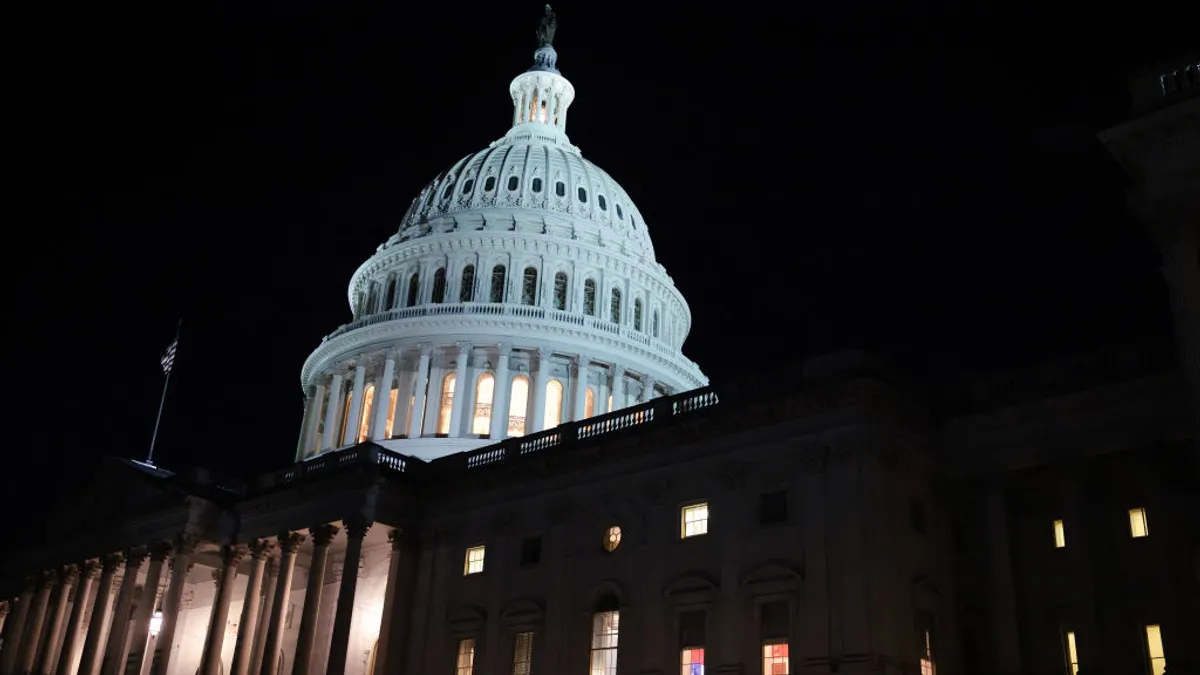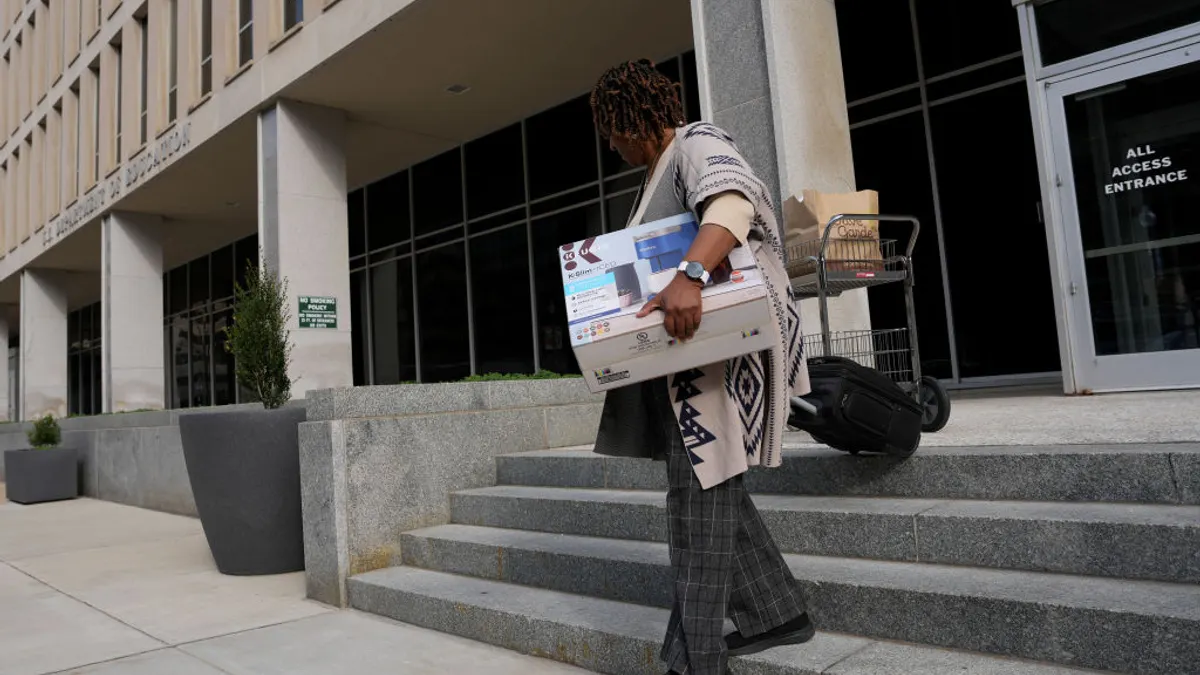Janna Wagner is co-founder and chief learning officer at All Our Kin, a nonprofit that trains and supports family child care educators, and co-teaches a course on “Child Care, Society and Public Policy” at Yale University.
There is a series of photos of my niece, Farah, when she was about 6 months old. Farah is on the kitchen counter. Her Aunt Nadia, who was caring for Farah while mom was at work, had cut a grapefruit in half and given it to her. You can see Farah’s brain synapses firing as she observes it, licks it, squeezes it, smells it and bites it. The photos beautifully illustrate the promise of the early years and the power of children as explorers and scientists of their world.
During the first three years, children’s brains develop at a remarkable rate — more than one million new neural connections form every second, with more than 90% of the brain built by kindergarten. And much of the experiences that shape this development happen when their parents are at work. But few families have the luxury of an Aunt Nadia.
According to the Center for American Progress, 51% of the U.S. population lives in child care deserts — places with more than 50 children under age 5 that have either no child care providers or so few options that there are more than three times as many children as licensed child care slots. Now, with states and cities reeling from the impact of omicron, child care availability is more tenuous than ever.
Providers across the country had been holding out hope for Build Back Better, the human infrastructure bill that included child care as a key component. With President Biden reconsidering how to get congressional support for child care, it is more important than ever for state legislators to leverage their existing budgets and consider other means to make child care more accessible — and a viable career for early childhood educators.
These plans must be inclusive of a proven model that provides top-notch early educational opportunities: family child care. Also known as home-based care, family child care educators are licensed small business owners with a commitment to child development. For more than 20 years, All Our Kin has trained, supported and sustained family child care educators, partnering with early childhood programs that reflect children’s interests and curiosities.
It is a partnership that should also be formed between elementary schools and family child care. Because family child care educators work with small groups of mixed-age children, are well-positioned to create experiences that pique the interest of the young learners in their care, and lay the foundation of future health, education and positive outcomes that quality early education has shown to provide. The stories that illustrate this are endless.
In one program we support, a boy who hadn’t been around babies is excited to interact. The baby is included in all they do, rather than sitting in a crib or high chair observing the action from afar. The educator works with the boy on communication skills and how to play with the baby — scaffolding his language, self-control and physical skills — to nurture and use words and gentle hands with her.
For another educator, bringing her children outside to learn is at the heart of her program. Children of all ages crouch down, holding magnifying glasses to examine the sidewalk and grass, noticing the weeds in the pavement cracks and studying the bugs. The children touch a large tree, observing, smelling the leaves and tugging at the branches. Afterwords, on easels in the backyard, children draw what they see and paint with their hands and color with markers.
In a third program, a child is fascinated with space and the solar system. The educator offers clay for children to create planets and even transforms their sleeping area into “space” with black paper and glow-in-the-dark stars. They look for the sun and the moon in the sky and read books on planets. They wonder: Can we see the moon during the day? Can we touch the moon?
These experiences and interactions, emerging from children’s own questions and interests, spark their desire and excitement to learn more. They encourage children to wonder about themselves, other people and the world around them, nurturing creativity and curiosity — important foundational skills needed to succeed in school and in life.
All of this is even more essential during the pandemic. Given children’s educational and mental health needs during this time of turmoil and stress, intimate, child-led, emergent experiences based in nurturing, warm relationships with adult caregivers — like those offered by family child care educators — buffer children from the worst effects.
Recognizing family child care is a no-brainer, yet it hasn’t happened. Family child care educators are still seen as babysitters. They and their work are systematically devalued and underinvested in, which hurts them and the children they serve. Family child care providers deserve a place at the table as school leaders consider how to best support young children, particularly a generation whose lives have been completely changed by the pandemic:
- First, superintendents and individual school leaders should know about the family child care programs in their communities and engage them as valuable, trusted partners who have important information to share about the children and families they both serve. By building relationships with providers and spearheading deeper and more creative partnerships, schools can be even more ready to support young children when they enter kindergarten.
- Second, districts could share information about kindergarten readiness and transition with family child care educators, and collaborate to support children and parents during one of the most critical transitions in students’ educational lives. They could invite family child care educators to sit on transition committees and trainings, and seek their input into the district’s support and activities. Research shows smooth transitions matter for later academic achievement.
- Finally, family child care educators are teachers and have a depth of knowledge and expertise to share in their own right. Elementary school teachers, and the districts and states who set the standards, should listen and learn from the play-based, relationship- and child-centered approach that yields a wealth of information about a child’s learning style and needs. Family child care educators have a wealth of experience and knowledge to share — they just need to be listened to and invited into the conversation.
Without family child care, we cannot expect economic recovery or a full academic recovery from the pandemic. At this unique moment, we must stand up for the educators whose unsung dedication and commitment positively impacts so many children. The time is now to support family child care.


















